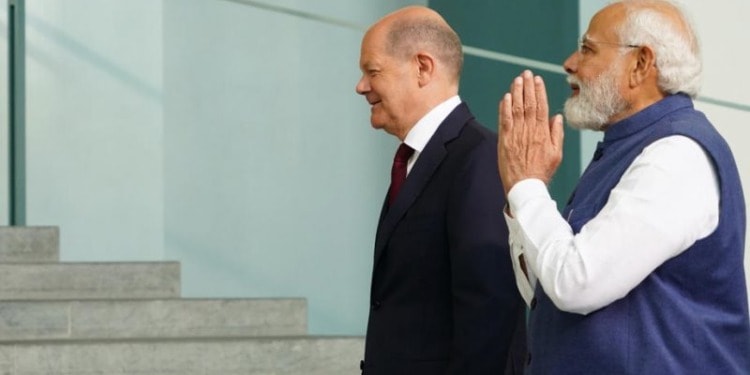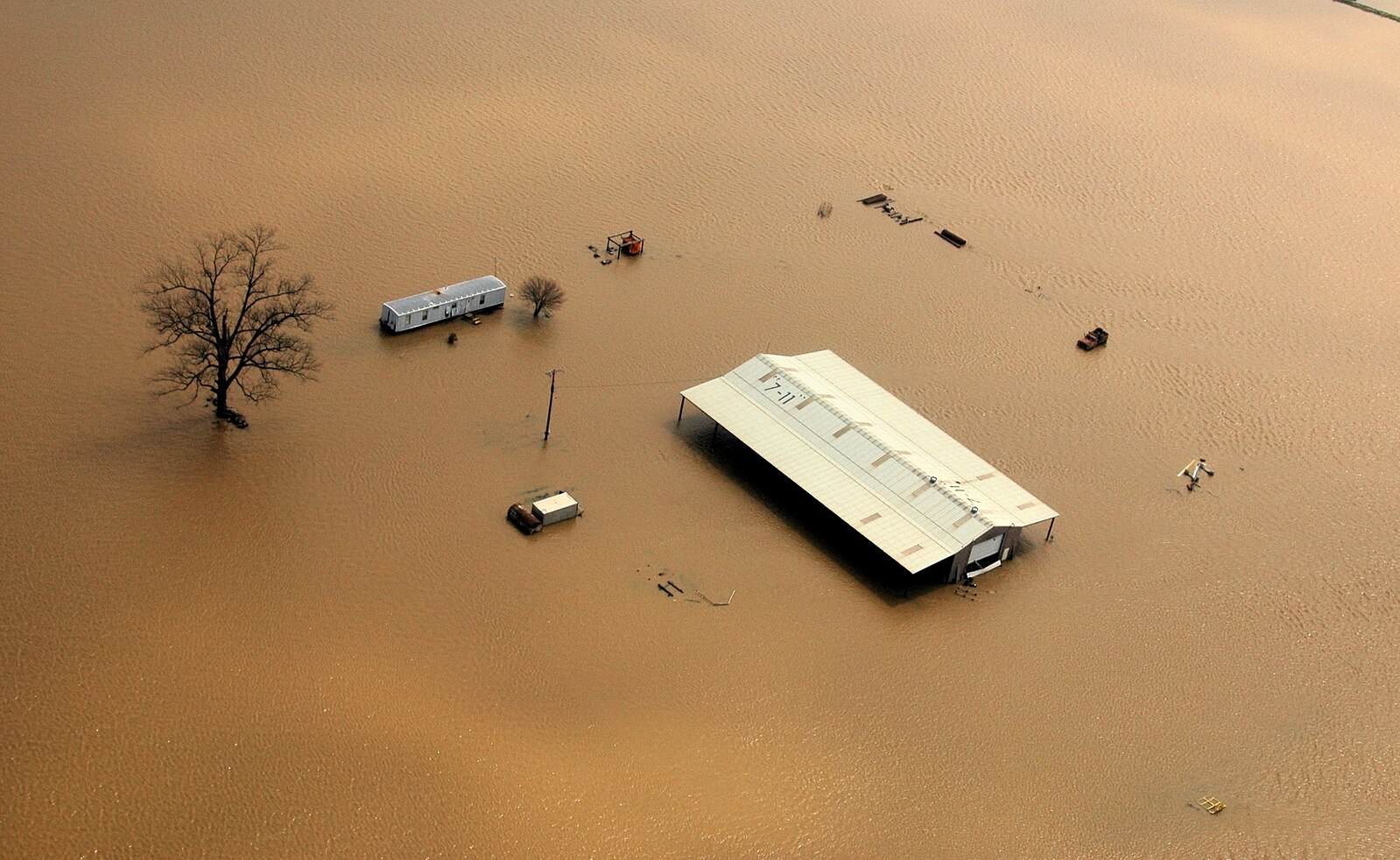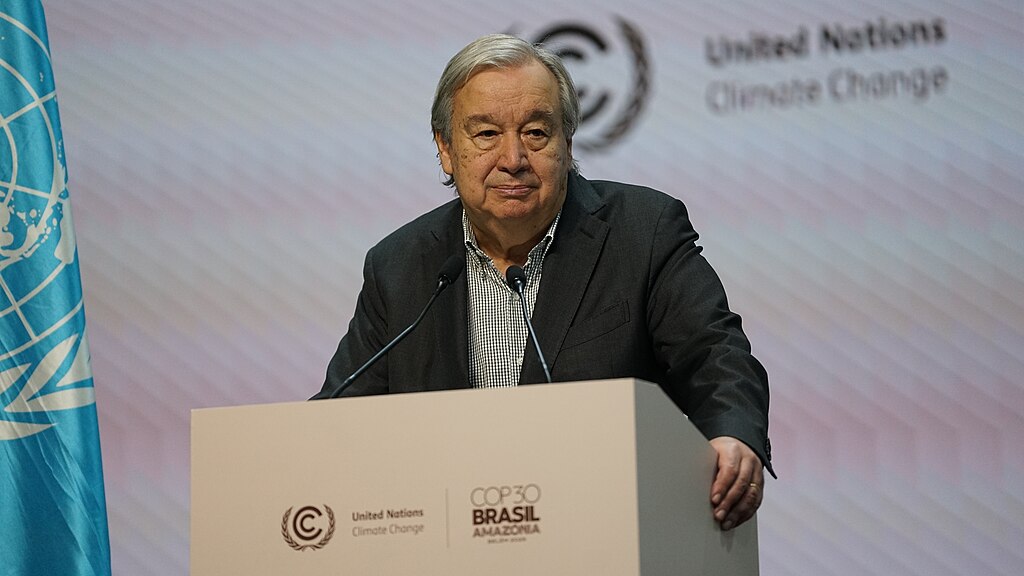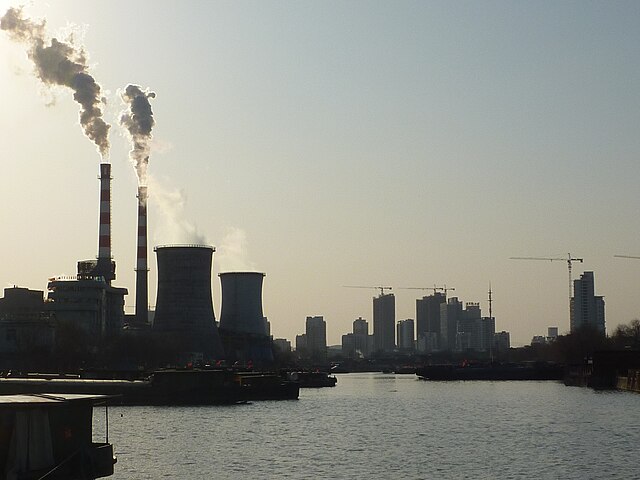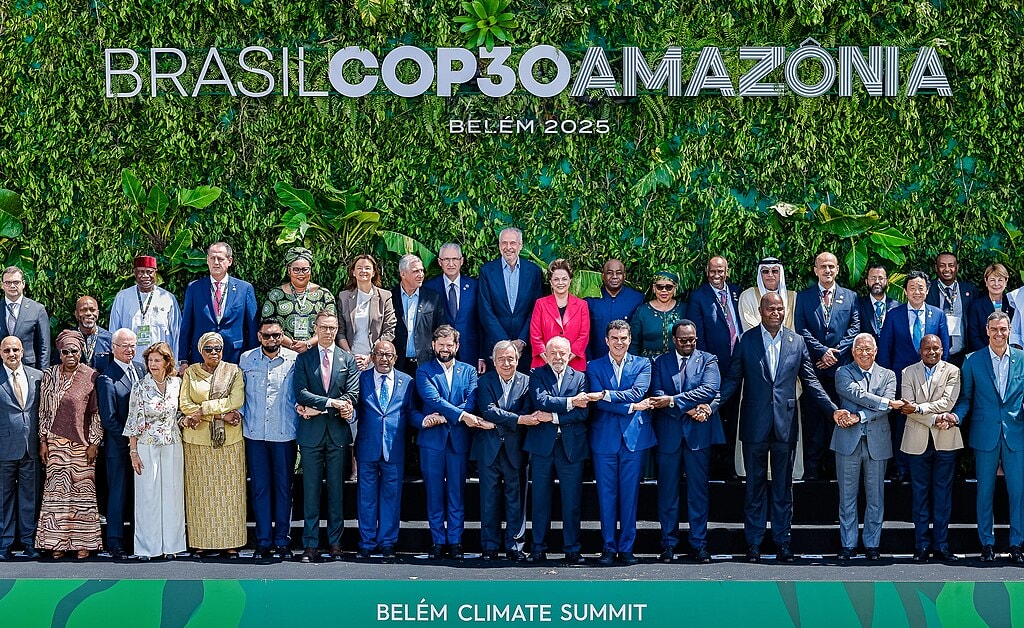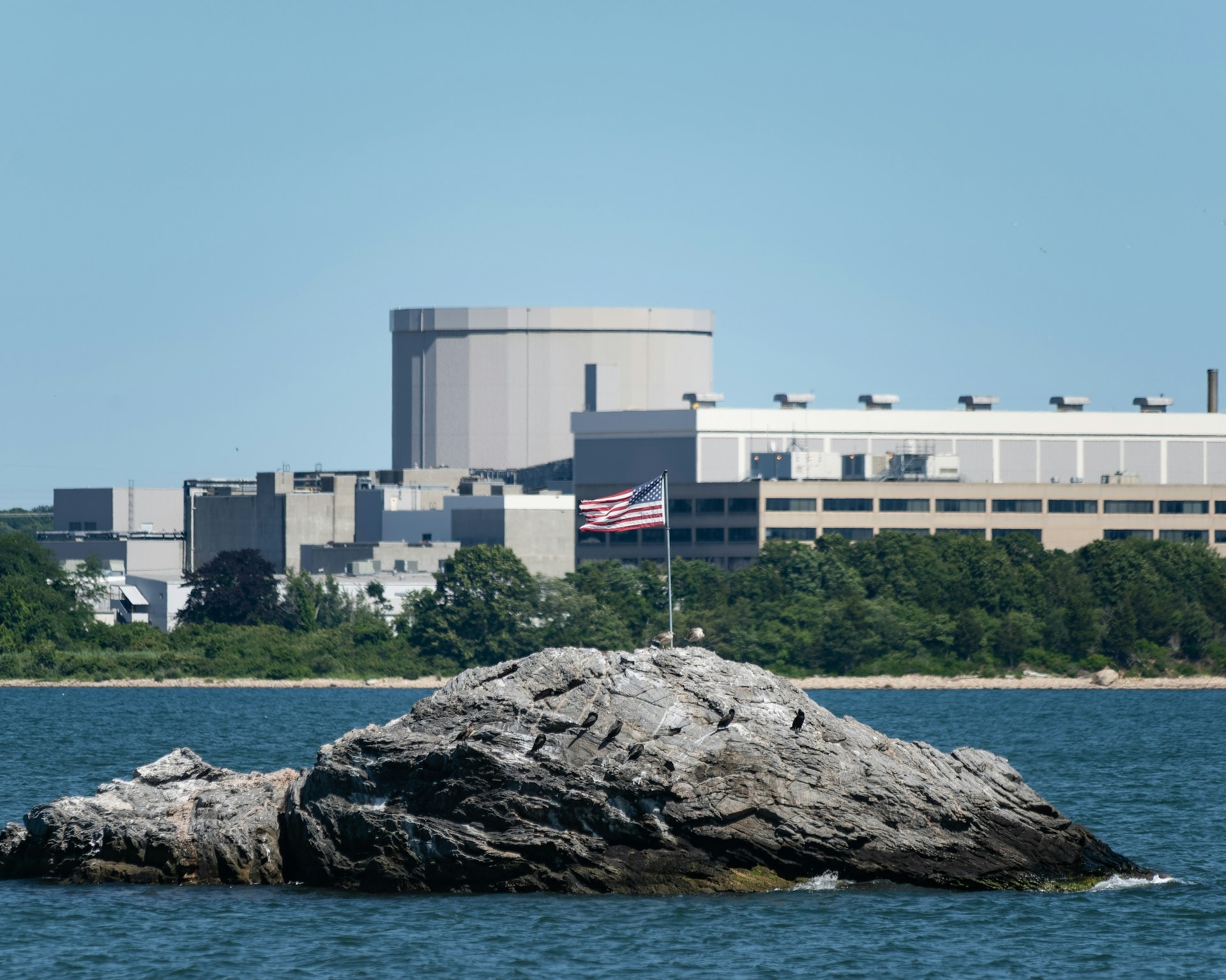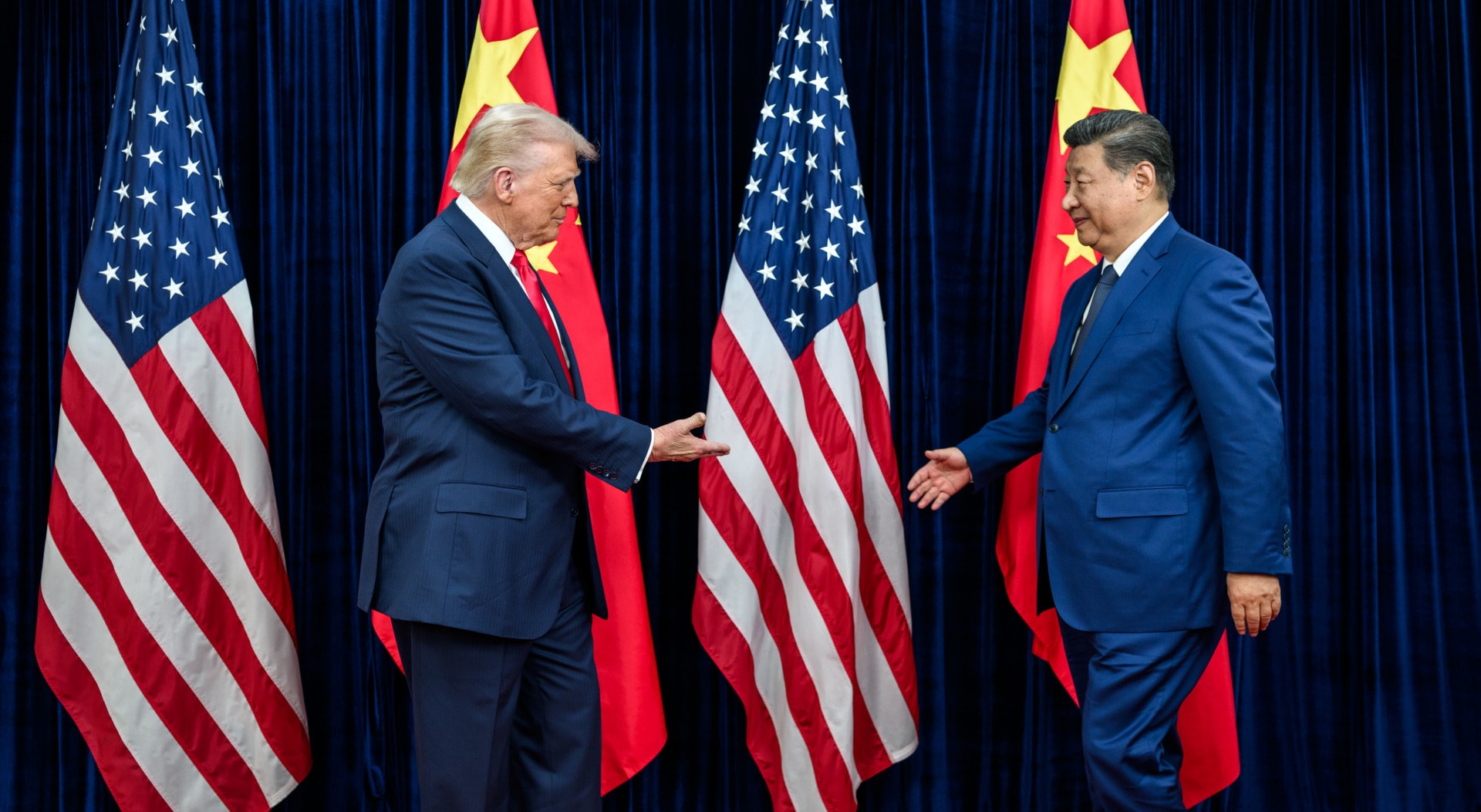German Chancellor Olaf Scholz pledged 10 billion euros ($10.51 billion) to help India achieve its climate goals after meeting Prime Minister Narendra Modi in Berlin on Monday.
The agreements covered issues ranging from technical assistance to increasing the use of renewable energy and hydrogen, to reducing greenhouse gas emissions, protecting biodiversity and improving agricultural land use.
“Every fifth person on this planet is Indian. Without Indians, you cannot solve any big world problems, and one of the biggest is climate change. We try to work together with India and help with climate change, renewable energy and similar projects, which also helps in working towards our own goals we promised at COP26 in Glasgow,’’ said German Ambassador Walter Lindner.
Indian Prime Minister Narendra Modi is in Europe this week, visiting Germany, France and Denmark, where he will meet the leaders of the five Nordic countries.
German Chancellor Olaf Scholz has invited India to attend a G-7 summit in the Bavarian Alps next month. In New Delhi last week, European Commission President Ursula von der Leyen announced a new trade and technology council designed to deepen cooperation between the European Union and India.
India has a neutral stance over the war in Ukraine. But, this did not affect the cooperation with Europe, which is more directly threatened by Russia and has a very contrasting position. Rather than Europe and India drifting apart as a consequence of the war, they seem instead to be growing closer based on the developments of this week.
The International Panel on Climate Change (IPCC) released earlier this year, found that both India and Germany will suffer more extreme events due to climate change. Both countries together account for nearly 9 per cent of global greenhouse gas.
“At COP26, India and Germany agreed to phase down unabated coal power. Germany will exit coal by 2038, possibly much earlier. And India has just joined a multilateral Coal Transition Programme funded by the Climate Investments Funds and supported by Germany. Very concretely, India has already identified 50 gigawatts of coal plants for retirement by 2027,” said a statement issued by the German Embassy.
Urgent, ambitious action must be taken to achieve net-zero
While speaking at COP26 in Glasgow, Indian Prime Minister Narendra Modi announced the intention for India to achieve net-zero emissions by 2070.
Participants agreed that this timeline, despite being 20 years after the 2050 goal set out by the IPCC, still requires a deep transformation of the economy. This includes the power sector becoming completely renewable by 2050, the transportation sector moving towards electricity away from fossil fuels, implementing a carbon trading system and investing massively in new green technology.
There was general agreement that companies must still take urgent action to decarbonize at the pace and scale set out in science. Indian corporations should not see themselves as having the luxury of delaying action for net-zero by two decades.
Decarbonization and increase of green finance
India is the second-largest producer of both cement and steel, after China. By 2050, almost 20% of the steel produced globally is expected to come from India, compared to around 5% today.
In order to support the decarbonization of these industries, the Science-Based Targets initiative (SBTi), which is backed by the United Nations, is currently developing guidance to enable cement, steel and building sector companies in India to set 1.5° C-aligned science-based targets.
Corporations need to work with the state government to understand how developmental funds and public finance can be leveraged to increase the uptake of private finance in India. The existing successful models must be identified and scaled up to support the mainstreaming of green finance. In addition, clear and robust definitions of what is ‘green’ for financial and non-financial reporting are needed for accountability.
Overall, India starts moving in the direction of working toward achieving its climate goals. The increased cooperation between the EU and India can only be beneficial for future collaboration in order to effectively combat climate change.
Editor’s Note: The opinions expressed here by Impakter.com columnists are their own, not those of Impakter.com — In the Featured Photo: German Chancellor Olaf Scholz (left) and Indian Prime Minister Narendra Modi (right) arrive for a family picture at the Chancellery in Berlin, Germany, 2 May 2022. Featured Photo Credit: Euractiv.


